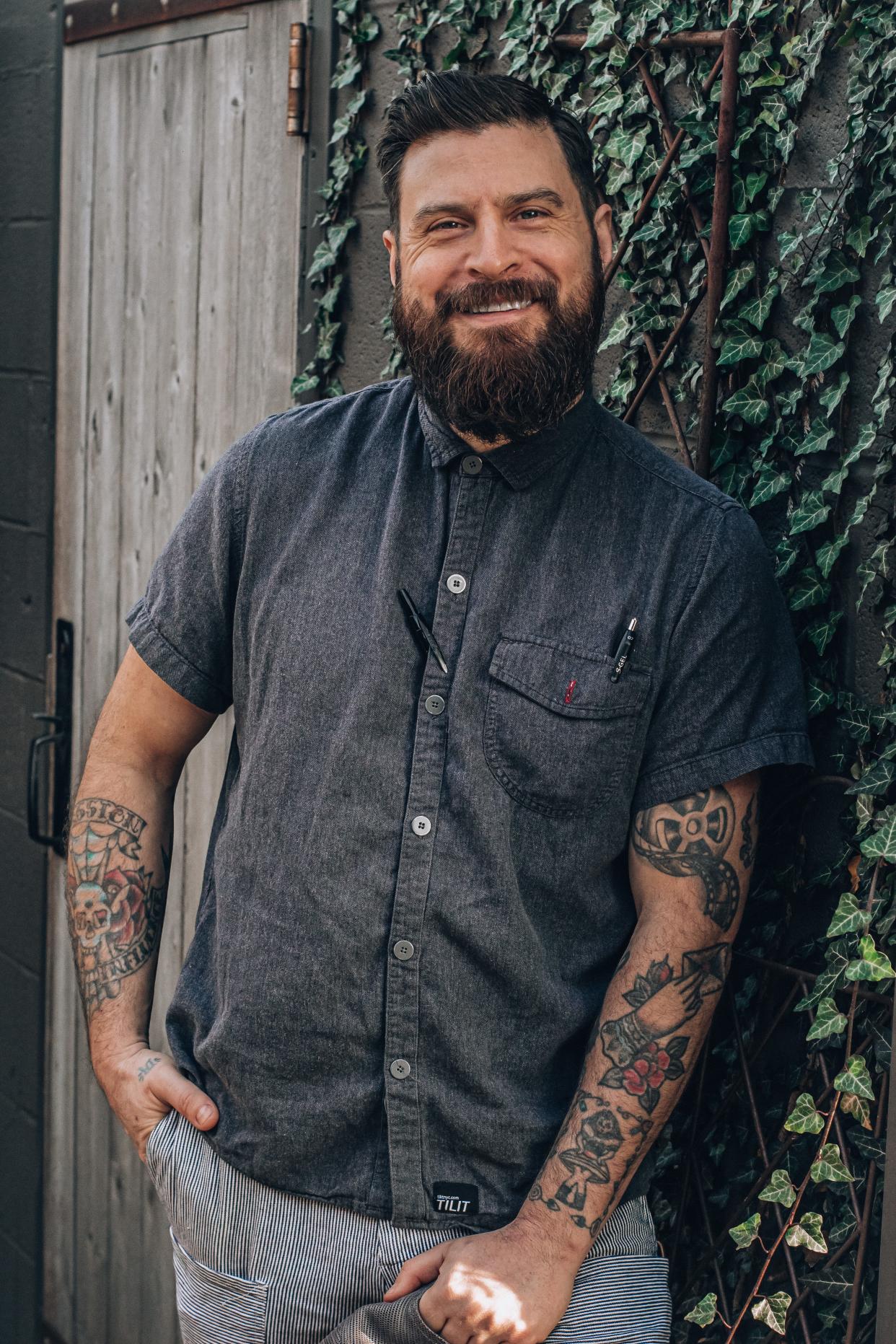The mental health dilemma facing Nashville's restaurant industry: One chef's story
Jason La Iacona loves food.
Growing it, cooking it, sharing it. The chef lights up when walking through the garden at Miel, the Nashville restaurant where he serves as head chef.
But he knows all too well that the food industry hasn't always loved him back. The constant stress of the job forced him into a dark place when he was pushed to his breaking point.
He's not alone. Mental illness like anxiety and depression can be exacerbated while working in the hospitality industry, where long hours, late nights and high stress are common. Many workers turn to drugs and alcohol to cope with intense demands.
For an industry still recovering from pandemic-related shutdowns, a new priority has emerged with a roaring vigor: employee wellness.
La Iacona speaks openly about mental health on social media and on his podcast "F You Depression." He wants to be a part of ending the stigma attached to mental illness that keeps people from seeking out help.
Fighting mental illness in the restaurant industry: One chef's story
La Iacona ended up in the emergency room.
The chef came to Nashville 10 years ago for a job opportunity in a large hospitality group. He moved from Chicago, Illinois, where he attended the Le Cordon Bleu Cooking and Hospitality Institute. Then, in 2019, he started a new job.
He began working up to 80 hours per week without time off. Energy drinks fueled him instead of breakfast and three hours of sleep per night was the norm. He said he pushed himself so hard because he was invested in the work he was doing.
Invested is an understatement. The passion for food and cooking glows around La Iacona like an aura. Ballpoint pens are an ever-present part of his uniform, tucked into the pockets of his button-down shirt — for signing off on food deliveries or jotting down notes and reminders.
Despite working past the point of exhaustion, he couldn't take a break from the kitchen because no one would be there to take his place. He was caught up in a toxic cycle present in so many restaurant kitchens across the U.S.
Absent managers didn't take his suggestions for improving organization in the kitchen, and too much fell on his shoulders. One day, it all came to a head.
He was in the middle of a shift when he called human resources for help. He tried to describe how he felt.
"I don't think I'm going to make it," he said.
He went to the emergency room, where a psychiatrist couldn't do much other than suggest rest and time away from work. And his coworkers didn't know how to help, either. He was let go from the restaurant a month later.
"When I got out of that working relationship, I had to have a lot of assessment and figure out what went wrong," La Iacona said. "How do I protect myself from that ever happening again?"
He started looking for new jobs, feeling uninspired by generic-sounding job postings at restaurants around the city. He applied for the head chef position at Miel, but he had concerns about putting himself back in the heat of a kitchen.
Building a new relationship with work
When he met proprietor Seema Prasad, La Iacona pushed himself to draw a new, healthy boundary with his working life. He was still recovering from years of being constantly overworked.

He asked for four shifts per week. He could create a menu, train the team to operate some nights without him and manage the kitchen operations.
To his surprise, Prasad agreed.
"It was this liberating feeling," he said. "I had never stood up for myself before. This was different."
Almost four years into the job, he has remade his relationship with work, but he acknowledges the industry has a long way to go when it comes to changing the culture for the better.
"We have an opportunity to cultivate a culture of positive growth," he said. "So every day, try your best to do that."
This article originally appeared on Nashville Tennessean: Nashville restaurant Miel head chef details mental health journey
